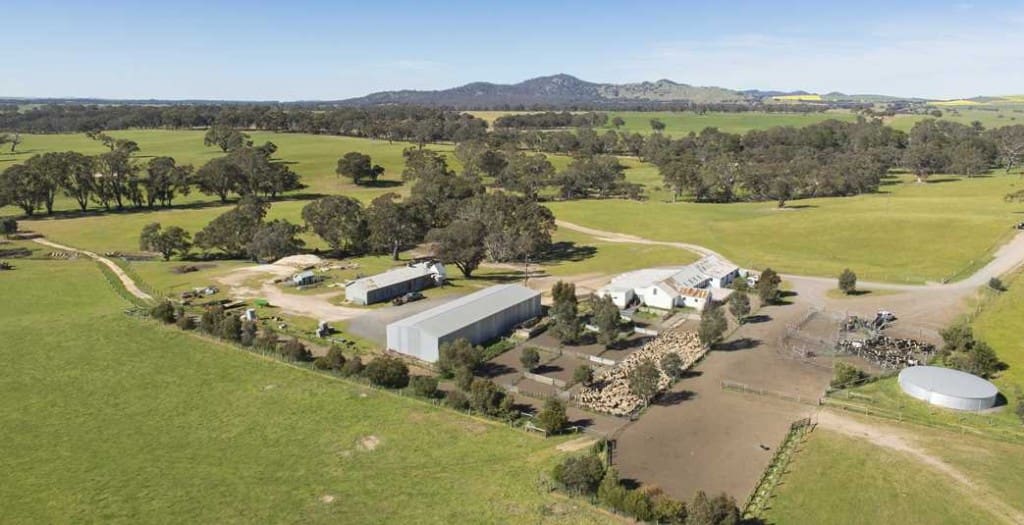POOR farm succession planning is not currently affecting property prices – something that has happened more by good luck than good management, according to a number of industry experts contacted for this week’s property review.
Accounting, financial, lending and legal advisor Chris Mulcahy, a director at Mulcahy & Co discusses farm-sector succession with clients on a daily basis and warns about the potential costs if they fail to act.
“The most concerning issue is who is going to take on this farmland?” he said.
 Mike Stephens is the founding director of Meridian Agriculture, a major agribusiness consultancy group with a client base in southern Australia. He said there are very few farmers who have a ‘live’ succession plan.
Mike Stephens is the founding director of Meridian Agriculture, a major agribusiness consultancy group with a client base in southern Australia. He said there are very few farmers who have a ‘live’ succession plan.
“Last year we interviewed 6000 farm businesses and the majority didn’t have a strategy for farm succession. People must decide if they are going to keep the farm in the family, or if they are going to sell it. If they are going to keep it in the family, they need to work out some sort of succession plan.”
According to Mr Mulcahy, lack of succession can destroy viable properties or force once viable farms to be made smaller, and often less economically viable.
“The problem arises when there are multiple generations in a farming enterprise, where there is a lack of certainty. When you get a lack of certainty, you can get a lack of trust between the individuals because no one really knows what is going to happen. A lack of certainty can be very damaging,” he said.
If the issue isn’t addressed, lack of succession could force some farmers to sell when they don’t want to, or when conditions are less than ideal.
Mr Mulcahy said the financial risk lay in stamp duty and capital gains tax. “Incurring those costs could potentially place farmers, who hadn’t dealt with succession, under enormous financial stress.”
Mr Stephens said the lack of an identified successor can sometimes force properties onto the market.
“The lack of a transparent succession plan is an important factor in family members deciding whether or not to come home,” he said.
He said if family members had unrealistic expectations about the family farm and started squabbling, then ‘fire-sales’ could result.
“For example, if someone thought they were going to take over the farm, but other family members expected to divide the assets equally. Fractured relationships, a pie that’s too small and someone who tries to hang-on too long can also push a property onto the market sooner than anticipated,” he said.
Mr Stephens said forced sales or fire-sales could be avoided by better planning.
“The expectation is the older generation will have the funds to retire and not be totally dependent on the farm; will hand over a viable business to a family member and will deal with the non-farming members so they are happy with their share now and in the future,” he said.
“Realistically, this occurs in a very small number of cases, perhaps 15 percent (less than 8000) of Australia’s 53,000 farms.”
Impact on property prices
Mr Stephens said in the current market, property prices weren’t being affected by forced or fire sales. “In the past, stressed sales or the inability to meet bank commitments – caused partly by poor farm succession planning – have affected property prices. Today, the property market is over-heated.”
Mr Mulcahy agreed, saying farmland was in high demand, but he warned that the tables could turn.
“If there wasn’t that demand that’s currently in place, it could become an issue. If those conditions changed to a high supply of property and low demand, however, that’s going to impact property prices.”
Mr Mulcahy said to protect a property’s price from such ‘distressed’ sales, an owner needed to sit down and discuss the future of the farm with family members and an advisor.
“The most important point is understanding who owns what. A classic farming family has blocks owned by different family members, as well as a family trust. So, determine who legally owns the land or assets, the risk of that ownership and then work out a better structure that protects the value of the property for the future.”



HAVE YOUR SAY